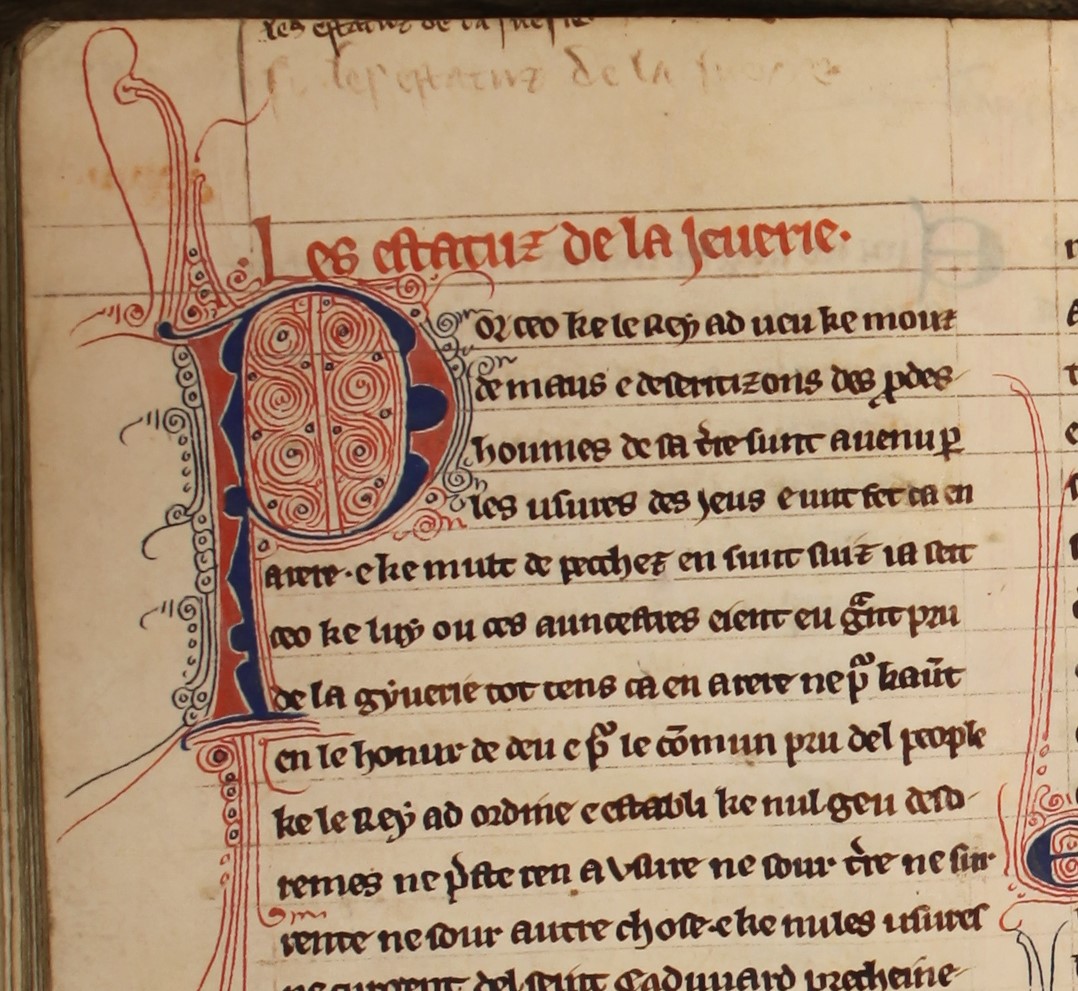
Extract (a) of the Statute of Jewry, c.1275. Catalogue ref: E 164/9, fol. 31d.
In 1275, King Edward I introduced a Statute of the Jewry with further rules and regulations for the Jewish community living in England. Various versions of this statute survive, but the document below is preserved in a compilation book of statutes at The National Archives. Unlike the majority of the documents in this lesson series, the Statute below is written in Anglo-Norman (a form of the French language). This task focuses on three key extracts from the statute.
Anglo-Norman Transcript
Les Estatutz de la Jewerie
Por ceo ke le Rey ad veu mout[z] de maus e deseritizons des p[ro]des houmes de sa t[re]re sunt avenue p[ro] es usures des Jeus e unt fe[i]t ca en arere, e ke mult de pecchez en sunt sui[tz] ja seit ceo ke luy ou ces auncestres eient eu g[aeg]nt pru de la gyuerie tot tens ca en arere, ne p[re] kau[m]t en le honur de deu e p[re] le com[m]un pru del people ke le Rey ad ordine e establi ken ul geu desoremes ne p[re]ste ren a usure ne sour t[re]re ne sur rente ne sour autre chose […]
Simplified Translation
Since the king has seen various evils, and the disinheriting of the good men of his land by the usuries (lending money at interest) of Jews made in time past, and that various sins have followed thereafter; [and] although he and his ancestors have received much benefit from the Jewish people in all time past; nevertheless for the honour of God and the common benefit of the people, the king has ordained and established, that from this day forward no Jew shall lend anything at usury, either upon land, or upon rent, or upon other thing […]
Read Extract (a) of the Statute of Jewry, c.1275 and consider the accompanying questions:
- What does the king no longer allow Jews to do?
- What reasons does the king give for introducing this new rule?
- How do you think Jewish individuals might have felt and/or responded to this rule?
